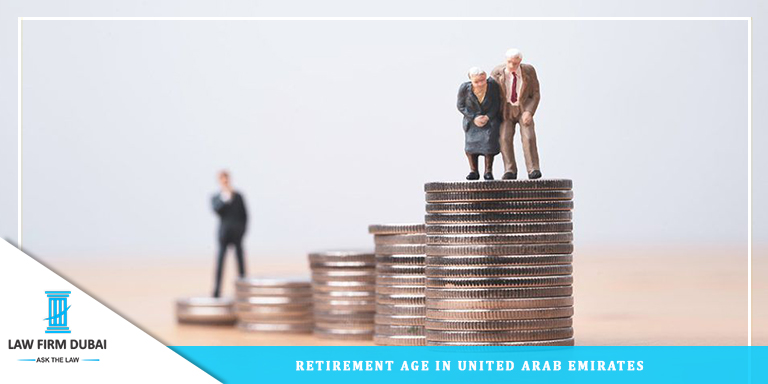
Retirement Age in United Arab Emirates
Intro
Retirement age plays an important role in forming workforce policies, financial stability and security, and the economy of a country. The United Arab Emirates’ (UAE), retirement policies are influenced by several factors, including nationality, employment, and the pension scheme plans. The UAE has taken several initiatives to regulate retirement for both Emiratis as well as expatriates living in the UAE. This way it is ensured that sustainable employment policies are considering needs of a growing aging population in UAE. We will conduct in-depth, comprehensive and details analysis of the retirement age in the UAE, covering current policies, retirement plans, pension schemes, future trends, and the implications for employees and employers.
What is the Retirement Age in UAE
The retirement age in UAE varies depending on whether an individual is an Emirati National or an expatriate. It also depends on that whether they work in the public or private sector.
What is the Retirement Age for Emirati Nationals in UAE
For UAE nationals, the standard retirement age depends on whether they are employed in the public or private sector. Let’s throw light on this in detail:
- Public Sector: The official retirement age for Emirati nationals working in the government sector is 60 years. However, exemptions are also there. For example, some high-ranking officials and professionals in essential services, such as healthcare or law enforcement, can continue working beyond this age. But special approvals are required.
- Private sector: Emiratis working in the private sector have to retire at 60 years. But once again, the law allows for extensions but under employer-employee mutual consensus through agreements.
- Pension Scheme: UAE Nationals or Emiratis are entitled to a government-backed pension provided by the General Pension and Social Security Authority, which manages pension funds and retirement benefits for UAE nationals.
What is the Retirement Age for Expatriates in UAE
- Private sector: The standard retirement age for expatriates is 60 years. But work permit can be renewed up to 65 years, but the employer has to submit the required documentation.
- Exceptions: Expatriates with specialized skills in sectors such as medicine, academia, and finance can extend their work permits beyond 65 years. It can also be extended to 70 years.
- Retirement Visa: The AE government has introduced long-term residency options, investment options and retirement visa options.
Recent Changes in Regulations
The UAE has implemented several reforms to accommodate its evolving workforce needs, including:
- Retirement age limits in certain industries, for highly skilled workers and professionals have been increased with subject to special permissions.
- Encouraging expatriates to plan for long-term retirement through government and private-sector initiatives.
- UAE Retirement Visa program, which allows expatriates to retire in the UAE and get benefitted.
What is the UAE Retirement Visa
The UAE government has also launched the Retirement Visa. It attracts expatriates who wish to retire and continue living in UAE.
- Eligibility Criteria: For a 5-year renewable retirement visa, applicants must meet at least one of the following requirements:
- He must own property in UAE worth at least AED 1 million or more.
- Financial savings of at least AED 1 million.
- Earn a monthly income of at least AED 20,000.
- Benefits of the Retirement Visa
- It provides access to world-class healthcare services.
- A person can sponsor dependents and family members.
- A person can travel in and out of the UAE.
- A person can have the opportunity to invest in UAE real estate and other businesses.

End-of-Service Benefits in UAE
- Emirati Pension Schemes
Emirati citizens are entitled to government-funded pensions managed by the General Pension and Social Security Authority. It is also known as GPSSA.
- Contributions: Employees contribute 5% of their salary, while employers contribute 15%.
- Retirement Pension Amount: Depends on the number of years worked and the final salary drawn.
- Gratuity For Expatriates
Expatriates do not qualify for government pensions but receive end-of-service gratuity payments. Employees who have completed one year or more of service receive gratuity based on 30 days’ salary per year for the first five years. 30 days’ salary per year after five years of service. Gratuity is capped at two years’ worth of salary.
Retirement Planning UAE Residents
Savings and Investment Plans: The UAE offers a variety of retirement savings plans, including private pension schemes, mutual funds, and real estate investments.
Healthcare Planning
The UAE has high-quality healthcare facilities, but private healthcare can be expensive.
Residency Options After Retirement
If retirees choose to relocate after retiring in the UAE, they may consider:
- Moving to a country with lower living costs or/and getting dual citizenship in investment-friendly nations.
Future Trends
The retirement landscape in the UAE is evolving due to several factors e.g. demographic, social-cultural, economic and many other factors:
- The UAE is considering extending the working age limit in sectors like healthcare and technology.
- Financial institutions are offering more retirement savings plans for expatriates.
- The UAE aims to become a top destination for global retirees.
Key Notes:
Retirement policies in the UAE are structured to balance economic growth with the needs of its workforce. Emiratis benefit from government-backed pension schemes, while expatriates can take advantage of gratuity payments and retirement visa options. With new reforms and financial planning strategies, individuals can ensure a smooth transition into retirement. For further information, consulting financial experts or official UAE government resources is recommended to stay up-to-date with evolving retirement regulations. Our lawyers are a great support, you can contact us anytime.



